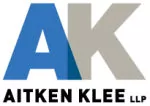- with readers working within the Insurance industries
Sections 41.25 and 41.26 of the Copyright Act allow copyright owners to send notices of infringed copyright to ISPs, such as Rogers. These sections, introduced in 2015, require that ISPs maintain records in a manner that allows for the identification of suspected infringers, send notices to suspected infringers and keep the records in a manner that allows them to be disclosed in a form that allows identification of suspected infringers.
Background
In the underlying proceeding, Voltage brought a motion requiring Rogers to identify the name and address of an individual suspected of illegally downloading movies for which Voltage holds copyright. Rogers did not take any position on whether Voltage was entitled to the disclosure Order, but sought to be compensated at the rate of 100$/hr for compiling the requested information. The Federal Court found that the fee "is what it is" and if Voltage wanted the information they had to pay the fee (See our previous post here). Voltage appealed.
No fee for compiling and retaining information
Section 41.26(2) provides:
(2) The Minister may, by regulation, fix the maximum fee that a person may charge for performing his or her obligations under subsection (1). If no maximum is fixed by regulation, the person may not charge any amount under that subsection.
Since the Minister had not yet fixed a maximum fee the Court of Appeal held that it was "bound by the law on the books", and held that Rogers was statutorily prohibited from charging a fee for compiling and retaining the relevant records. In contrast, since the notice and notice regime does not circumscribe the amount an ISP may charge for disclosing this information, Rogers was entitled to recover its reasonable and necessary costs associated with disclosure.
The Court of Appeal rejected Rogers' submission that the $100/hr disclosure fee was reasonable because it had to verify the retained information using a different computer system. The Court of Appeal held that this was work that Rogers was statutorily required to perform as part of its obligations under the Copyright Act and not part of the act of disclosure:
The additional work Rogers did was identification and verification work. Rogers should have completed this work as part of its subsection 41.26(1) obligations – matters for which it cannot charge a fee at this time.
The only evidence of Rogers' actual costs for complying with its disclosure requirements was that as of 2012, it was "at most, $0.50 per IP Address". The Court of Appeal held that this was insufficient to establish the current cost of disclosure, which was "likely nominal" since ISPs had been given a period prior to the enactment of the notice and notice regime to improve their systems. Having failed to establish its actual disclosure costs, the Court of Appeal held that Rogers was not entitled to charge any disclosure fees in this case, but noted:
None of the foregoing prevents Rogers in future cases from charging a fee, likely nominal, compensating it for the actual, reasonable and necessary.
A copy the Court of Appeal's Reasons for Judgment can be found here.
The content of this article is intended to provide a general guide to the subject matter. Specialist advice should be sought about your specific circumstances.
[View Source]

